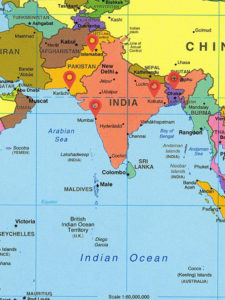
Public diplomacy refers to the ability of a country to attract foreign states through image building rather than using old coercive and stiff methods to get the things done in one’s way forcefully. One may say that public diplomacy is a public face of traditional diplomacy. In this diplomacy, neither a relationship that a state has with another country can be neglected nor the role of the public in the government’s policies. States use various ways to stand tall on an international forum. Thus no country ever wants to do anything against their international reputation. This reputation is achieved through tremendous efforts and then requires consistency to maintain it. Britain with no denying fact is among those states who have been prominent in international society for centuries. It already has a better and sharp image in the eyes of the world as for as its public diplomacy is concerned. All it needs to do is to maintain this very image by sticking to its various soft power approaches.
In today’s global politics Britain seems much interested in enhancing its soft power image throughout the world. As we know that Public diplomacy of a state is highly linked with state’s foreign policy as well. The steps adopted by Britain in achieving its foreign policy goals through soft power include exchange programs for students and scholars, visitors programs, cultural events and exchanges, language training, radio and television broadcasting, etc. Generally, Britain has been carrying out these practices all around the globe entirely sometimes however in South Asia; the UK has done a lot in recent years. In Bangladesh in 2013, for example, the English in Action project (funded by the UK’s Department for International Development) promoted the learning of English ‘as a route into work and out of poverty.’ In Pakistan, British Council has been working in the areas of Arts, Education, English and Youth Engagement in all four provinces as well as in Azad Jammu and Kashmir and Gilgit-Baltistan. For instance, Abaseen Foundation is a UK’s 3-year project with UK Aid directly focused on improving maternal health and reducing child mortality through developing health service delivery for a weak and marginalized community in North West Pakistan. Moreover, UK-India Education & Research Initiative, i.e., UKIERI is a multi-stakeholder partnership program funded by both Indian and the UK Governments to support educational programs, develop professional capacities and facilitate policy dialogues on areas of mutual interest. Whereas Sri Lanka has the most significant British Council Library membership.
In similar manners, Nation branding is another technique used by Great Britain to cash their better reputation. This not only provides an opportunity for states to interact on the international platform but also mitigates cultural barriers among their citizens. Brands such as Burberry London, Dove and Sunsilk are acting as a sensor that opens the diplomatic door for Britain in various states. Actress and Model Humaima Malick is the brand ambassador for Sunsilk in Pakistan, whereas Sunsilk’s brand ambassador for India is currently Alia Bhut. The overall nation branding of Britain is famous owing to six factors, i.e., Tourism, Culture, People, Immigration-Investment, Exports, and Governance. According to one of the British Council’s report, the UK ranked 3rd out of 50 nations for Tourism and 5th for Culture.
Furthermore, British government entities related to public diplomacy are well active in South Asia, for instance, British Council and FCO (Foreign and Commonwealth Office). BBC, on the other hand, is also playing its vital role to inculcate right image of the United Kingdom in the region. BBC Urdu not only provides its Pakistani viewers with correct information of Pakistan in Britain but also shares unbiased analysis on Pakistan’s current domestic as well regional issues. Similarly BBC Hindi has also been so vociferous for the rights of Indian immigrants in the United Kingdom and finally gained trust in public masses. Hence these public diplomacy techniques served as a binding force between the UK and the region.
To cut a long story short, Britain seems much focused on safeguarding its national interests. Its foreign policy is proving as stepping stone for its national attention whereas public diplomacy is acting as a lubricant to it. By doing so, it is successfully promoting its culture, tradition, products, etc. in the world generally and in South Asia specifically. Since decolonization from the subcontinent, The United Kingdom has always tried diplomatic ways to build a friendly relationship with South Asian countries. Public diplomacy though is considered new in the racks of overall diplomacy, yet the UK has successfully used it to promote its culture and to keep influence in this region.
